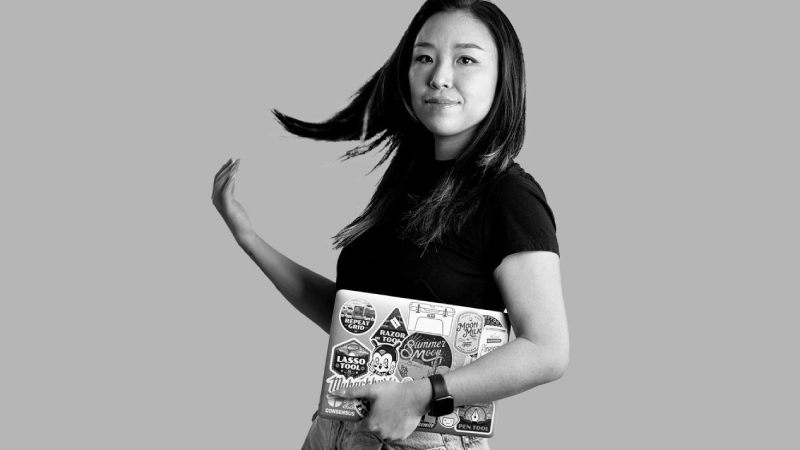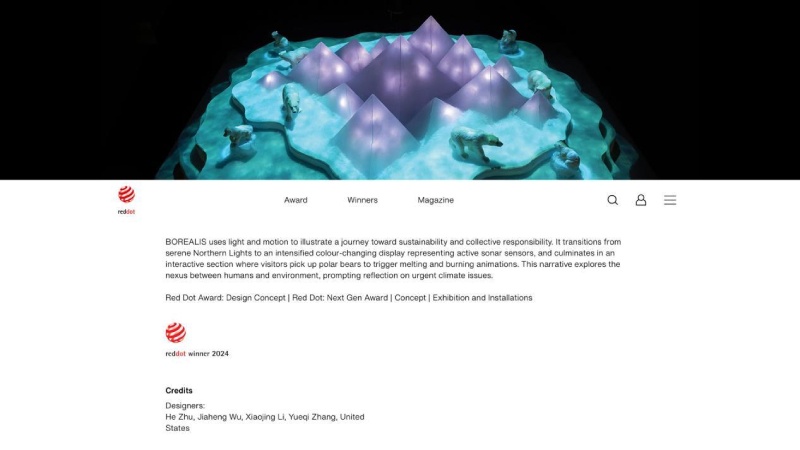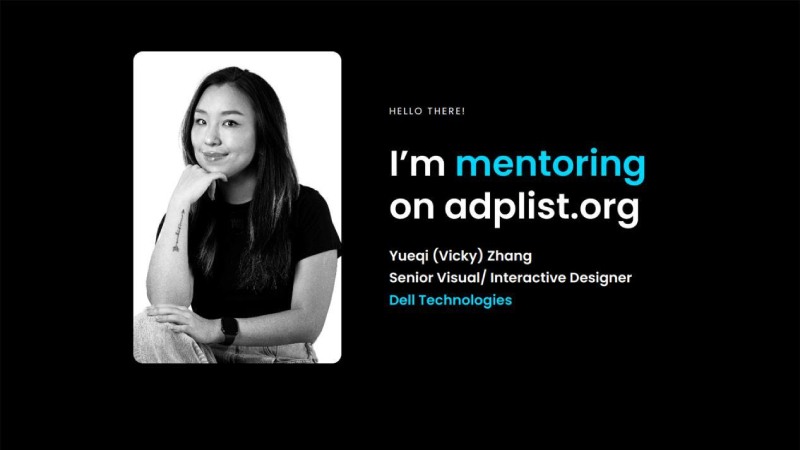BY Lucy Bailey
In today’s digital landscape, UX is more than aesthetics—it’s about seamless, intuitive experiences that feel effortless. Few designers embody this philosophy as deeply as Yueqi Zhang, professionally known as Vicky. Recognized in the industry under both names, her award-winning UX work, mentorship, and strategic innovation have positioned her as a leader in the field. With major international design awards, enterprise-level impact, and a passion for UX leadership, Yueqi (Vicky) is not just creating interfaces—she’s reshaping the way people engage with technology.

A UX Mindset: From Curiosity to Crafting Meaningful Experiences
Interviewer: What drew you to UX in the first place?
Yueqi (Vicky): You know that feeling when everything in a product just clicks—like it was made for you? That moment of effortless interaction is what fascinates me. I didn’t start my career thinking, “I want to design beautiful visuals and logical wireframes. ” I was drawn to human psychology, problem-solving, and storytelling. Every great product tells a story—not with words, but through how it guides users, removes frustration, and feels intuitive before they even realize it. For me, UX is about designing moments—not just screens. It’s the little details that make someone smile instead of getting frustrated. That’s what excites me.
Breaking Boundaries: The behind scenes of Award- Winning UX
Interviewer: Your work has earned multiple international design awards and recognition. How have these achievements shaped your approach to UX?
Yueqi (Vicky): Winning a Red Dot Award early in my journey was a major encouragement. It reinforced what I already believed—great design isn’t just about looking good; it’s about creating meaningful impact. That experience shaped how I approach every project, whether conceptual work or enterprise UX. Later, when MyDell Mobile received the SPARK: Digital Bronze Award and other industry projects gained recognition, it was proof that a human-first, problem-solving approach to UX makes a real difference. These experiences taught me that the best designs aren’t just about innovation—they make technology feel effortless. I don’t just aim to create something functional—I want users to feel like it was made for them. Whether it’s an award-winning concept or an everyday UX challenge, my goal is always to bridge the gap between people and technology.

UX is the Secret Weapon for Business Success
Interviewer: Many companies still don’t see UX as a core business strategy. How do you change that mindset?
Yueqi (Vicky): UX is often undervalued until a company realizes they’re losing users because their app is frustrating. Suddenly, UX becomes their best friend. When I present UX solutions to executives, I speak their language—not just in terms of design, but in numbers, conversion rates, retention metrics, and bottom-line impact. When companies see UX as a revenue driver rather than a cost, that’s when they take it seriously. The truth is, bad UX is expensive. But good UX pays for itself—not just in dollars, but in brand loyalty and long-term trust.
From Designer to Mentor: Paying It Forward in the UX Community
Interviewer: You also mentor UX designers through ADPList and also at Dell Experience Design Team. Why is mentorship such a big part of your career?
Yueqi (Vicky): Because I remember what it was like to be a junior designer, switching careers and wondering, “Am I doing this right?”
UX can feel like a black box—different teams work differently, and there’s no universal playbook. I was lucky to have mentors who gave me real, no-BS advice, and that made all the difference. Now, I want to pay it forward. I love seeing mentees go from feeling lost to landing dream roles, refining their portfolios, and confidently presenting their designs. And honestly? I learn from them, too. Mentorship isn’t just about teaching—it’s about growing together.

What’s Next? The Future of UX and Vicky’s Vision
Interviewer: Where do you see UX heading in the next five years?
Yueqi (Vicky): UX is becoming smarter, more adaptive, and deeply personalized—but that comes with responsibility. AI and automation are transforming UX, creating hyper-personalized experiences that anticipate user needs. But designers must ensure these advancements remain ethical, transparent, and unbiased. A seamless experience means nothing if it compromises privacy or inclusivity. As AI-driven UX evolves, responsible design will be key—balancing intelligence with human- centric values. My focus is on pushing UX beyond execution and shaping how companies integrate AI responsibly while using UX as a strategic advantage.
Final Words: Advice for Aspiring UX Designers
Interviewer: If you could give one piece of advice to UX newcomers, what would it be?
Yueqi (Vicky): Stay endlessly curious. UX is a lifetime learning journey alongside evolving technology. There’s no one-size-fits-all answer in UX. We have to challenge assumptions, break boundaries, and explore innovative solutions.
“If we want users to like our software, we should design it to behave like a likeable person: respectful, generous, and helpful.” — Alan Cooper, UX Pioneer And most importantly: Never forget the human behind the screen. Great UX isn’t just about usability—it’s about its impact on people, society, and the future. With a portfolio spanning award-winning designs, enterprise UX, and mentorship, Yueqi Zhang (Vicky) continues to push the boundaries of human-centered innovation. Whether it’s designing seamless experiences, advocating for UX as a business driver, or mentoring future designers, her impact is felt across the industry.
For more insights on UX strategy, design leadership, and emerging trends, connect with Yueqi Zhang (Vicky) on LinkedIn: linkedin.com/in/yueqizhangdesign
This article, written by Lucy Bailey, was published by Rachel Hamilton.